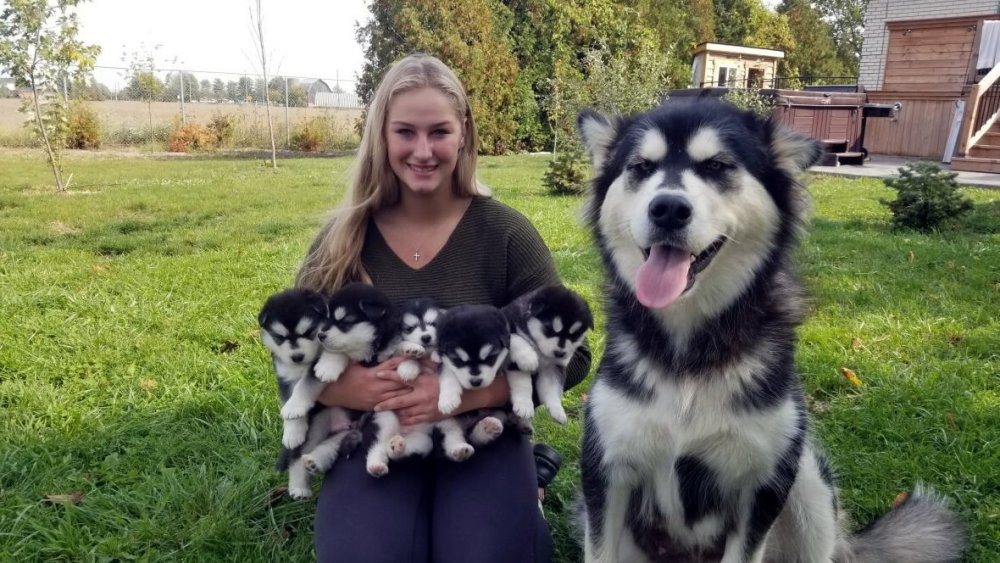Conclusion
Recap of key points in choosing a reputable breeder
Final advice for prospective dog owners in AustraliaImagine this: you’re on a sunlit path, ready to welcome a new dog into your life. But before you take that step, choosing the right breeder is crucial. A reputable breeder ensures your future pet is healthy, well-socialised, and a perfect fit for your family. This article is here to guide you through the process, helping you make informed decisions. We’ll explore what to look for in a breeder, the questions to ask, and the red flags to avoid. By the end, you’ll feel confident in your choice, knowing you’ve taken the right steps to find a happy, healthy companion. Let’s dive in and make sure your journey to finding a new furry friend is a smooth one.
Understanding the Role of a Dog Breeder

What a Responsible Breeder Does
A responsible breeder is like a matchmaker for dogs and families. They don’t just breed dogs; they nurture them. From the moment a puppy is born, a good breeder ensures it gets the best start in life. This means proper nutrition, regular vet check-ups, and plenty of socialisation. They know each puppy’s personality and can help you find the one that fits your lifestyle. A responsible breeder is also transparent, providing health clearances for the puppy’s parents and being open about any potential genetic issues.
The Impact of Breeding Practices on Dog Health and Temperament
Breeding practices can make a world of difference in a dog’s life. Ethical breeders focus on improving the breed, not just producing puppies. They select parents based on health, temperament, and breed standards. This careful selection helps reduce the risk of genetic disorders and behavioural issues. Puppies from responsible breeders are more likely to grow into well-adjusted, healthy dogs. So, when choosing a breeder, remember that their practices today shape your dog’s future.
Researching Breeders

How to Find Breeders in Australia
Finding a reputable breeder in Australia starts with research. Begin by checking breed clubs and associations, as they often have lists of registered breeders. Online forums and social media groups can also be helpful, offering personal recommendations and experiences. Don’t forget to ask your local vet for advice, as they often know breeders in the area.
Questions to Ask and Red Flags to Watch For
When you contact a breeder, have a list of questions ready. Ask about the puppy’s parents, their health clearances, and the breeder’s experience. Inquire about the socialisation process and how they match puppies with families. Be wary of breeders who avoid questions or seem secretive. Red flags include a lack of health testing, unwillingness to let you visit, or having multiple litters available at once.
The Importance of Visiting the Breeder’s Facility
Visiting the breeder’s facility is crucial. It gives you a chance to see where the puppies are raised and meet the parents. A clean, well-maintained environment is a good sign. Observe how the puppies interact with people and each other. This visit helps ensure you’re dealing with a responsible breeder who prioritises the well-being of their dogs.
Evaluating Breeder Credentials
When you’re on the hunt for a dog breeder, checking their credentials is a must. Look for certifications and affiliations with recognised breeding clubs. These affiliations often mean the breeder adheres to specific standards and ethical practices. It’s like a stamp of approval that they take their role seriously.
Understanding Health Testing and Genetic Screening
Health testing and genetic screening are non-negotiable. A good breeder will have their dogs tested for common genetic disorders specific to the breed. This proactive approach helps ensure your future pet is less likely to face health issues down the line. Ask to see the results of these tests; transparency is key.
The Significance of Breeding for Temperament and Health
Breeding isn’t just about looks. A responsible breeder focuses on temperament and health. They select dogs with stable temperaments and good health histories to produce well-rounded puppies. This attention to detail means you’re more likely to bring home a dog that’s not only healthy but also a joy to be around.
Meeting the Breeder and Dogs

What to Observe During a Visit
When you visit a breeder, take a good look around. The environment should be clean and well-organised. Notice how the dogs are housed and if they have enough space to move around. A tidy, well-maintained facility often reflects the breeder’s commitment to their dogs’ well-being.
Assessing the Living Conditions and Care Provided
Pay attention to the living conditions. Are the dogs clean and well-groomed? Do they have access to fresh water and quality food? These are signs of proper care. Also, check if the breeder provides regular veterinary care. Healthy dogs are usually a result of attentive and responsible breeding practices.
Interacting with the Breeder’s Dogs and Puppies
Spend some time with the dogs and puppies. Observe their behaviour. Are they friendly and curious? Well-socialised puppies should be comfortable around people and other animals. This interaction gives you a glimpse into their temperament and helps you decide if they’re the right fit for your family.
Health Guarantees and Contracts

Understanding Health Guarantees and Return Policies
When you’re choosing a breeder, health guarantees are a big deal. A good breeder will offer a health guarantee, which means they’re confident in the health of their puppies. This usually covers genetic issues for a certain period. It’s like a safety net, giving you peace of mind. Also, check the return policy. Life can be unpredictable, and a responsible breeder will have a plan if things don’t work out with your new pet.
What to Expect in a Breeder’s Contract
A breeder’s contract is more than just paperwork. It outlines the responsibilities of both parties. Expect details about the puppy’s health, vaccination schedule, and any conditions for returning the dog. It’s also where you’ll find the spay/neuter agreement, which is crucial for controlling the pet population and ensuring the health of your dog.
The Importance of a Spay/Neuter Agreement
Spay/neuter agreements are often part of the contract. They help prevent unwanted litters and contribute to the overall health of your dog. Many breeders require this to ensure their puppies don’t end up in shelters. It’s a responsible step that benefits both you and the wider community.
Ethical Breeding Practices and Their Importance
The Breeder’s Commitment to Reducing Genetic Disorders
When it comes to breeding, a responsible breeder is committed to reducing genetic disorders. They carefully select breeding pairs based on health screenings and genetic history. This isn’t just about producing puppies; it’s about ensuring the long-term health of the breed. By focusing on genetics, breeders can minimise the risk of inherited diseases, giving you a healthier pet.
Breeding Frequency and Its Impact on Dog Welfare
Breeding frequency is another crucial factor. Ethical breeders don’t overbreed their dogs. They allow ample time between litters for the mother to recover, ensuring her health and well-being. This careful approach not only benefits the mother but also results in healthier puppies. Overbreeding can lead to health issues and stress, so it’s important to choose a breeder who prioritises the welfare of their dogs.
The Role of Breeders in Breed Preservation
Breeders play a vital role in preserving dog breeds. They maintain breed standards and work to improve them over time. This dedication helps ensure that each breed retains its unique characteristics and qualities. By choosing a breeder committed to preservation, you’re supporting the continuation of these beloved breeds for future generations.
The Cost of a Puppy

Understanding the Price Range for Different Breeds
When it comes to buying a puppy, prices can vary widely depending on the breed. Popular breeds like French Bulldogs or Cavoodles often come with a higher price tag, sometimes reaching several thousand dollars. On the other hand, less in-demand breeds might be more affordable. It’s important to research and understand the typical price range for the breed you’re interested in.
What is Included in the Cost
The cost of a puppy usually includes more than just the dog itself. Reputable breeders often cover initial vaccinations, microchipping, and sometimes even the first vet check-up. These inclusions are crucial for your puppy’s health and can save you money in the long run. Always ask the breeder what is included in the price to avoid unexpected expenses.
Why Cheaper Isn’t Always Better
While it might be tempting to go for a cheaper option, it’s essential to consider what you’re getting. Lower prices can sometimes mean corners have been cut, whether in health testing, socialisation, or care. Investing in a puppy from a responsible breeder ensures you’re getting a healthy, well-adjusted pet, which can save you from costly vet bills and behavioural issues down the line.
Post-Purchase Support and the Breeder’s Role
Ongoing Support from the Breeder
Choosing a breeder isn’t just about the initial purchase; it’s about the support you receive afterwards. A good breeder is there for the long haul, ready to answer questions and offer guidance as your puppy grows. This ongoing support can be invaluable, especially for first-time dog owners.
Resources and Advice for New Puppy Owners
New puppy owners often have a lot of questions, and a responsible breeder can be a great resource. They can provide advice on training, nutrition, and health care. Many breeders also offer detailed care guides or recommend local trainers and vets. This kind of support helps ensure a smooth transition for both you and your puppy.
The Importance of a Breeder’s Community
Being part of a breeder’s community can be a huge benefit. Many breeders have networks of past buyers who share experiences and advice. This community can offer support and camaraderie, making the journey of raising a puppy more enjoyable. It’s like having a built-in support group that understands the unique challenges and joys of your specific breed.
Final Thoughts
Choosing the right dog breeder is a pivotal decision. It ensures your new companion is healthy and well-adjusted. By prioritising responsible breeding practices, you safeguard your pet’s future and contribute to ethical standards. Remember the importance of research, asking the right questions, and visiting facilities to make an informed choice. As you embark on this journey, let your commitment to quality and care guide you to a rewarding relationship with your new furry friend.
